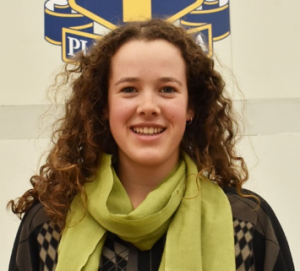 Written by Samantha, a member of our fantastic blogger team.
Written by Samantha, a member of our fantastic blogger team.
I don’t know how to adult.
Maybe no one really knows how to adult and we’re all just pretending, but sometimes I feel like I’m still way behind everyone else. Being an adult requires a whole range of skills in a whole range of areas – taxes, politics, budgets, religion, loans, geography, international relations – that all confuse me to no end.
People often say to me that while I might be ‘book smart’ I am by no means ‘world smart’. I can tell you how an action potential travels down a neuron, or how to conjugate French verbs, but when it comes to the skills and knowledge I need to live, work and function in society I’m at a loss.
So, when I moved out of home for the start of university, just a week after my 18th birthday, I quickly discovered that living in a boarding house and living alone are two very different things. I was thrown into the deep end and all at once I had to figure out and adjust to a whole heap of new responsibilities and tasks: university, city life, living by myself, cooking for myself, budgeting, Centrelink, voting … the list goes on. Not only do I not know how to be world smart, I’m often not even sure what I’m supposed to do or know, let alone when or why.
Added to this difficulty is the expectation that when we become adults we automatically know and understand what it is to be world smart. Unless you did the few available school subjects that happen to teach applicable skills and knowledge, there are very few opportunities to learn how to be world smart.
However, I know that teaching oneself by trying, and occasionally failing, is an effective method of learning. So, I watch the news and search the internet to figure out for myself what’s going in the world. My generation is lucky that we can turn to the internet to help us but the reliability of this information is limited, especially if you don’t know what you’re looking for or where to look for it. Besides, the sheer volume of information available and a lack of guidance on how to navigate and make sense of it makes the task of learning overwhelming.
Unfortunately, expectations and existing social norms depict an attitude of indifference and superiority that impedes communication between adults and teenagers. This results in young adults like me putting pressure on themselves to figure it all out on their own, rather than asking for help. We display a false confidence to convince ourselves and others that we know what we’re doing, and we are reluctant to ask for help because it feels wrong to admit to ignorance and vulnerability. In doing this, we also alienate ourselves from the guidance and support of parents and friends who have invaluable experience and knowledge to impart.
It can be hard to think logically when faced with challenges, unfamiliar situations and the desire to prove to ourselves and others that we are capable. In reality, I know that my parents and other adults in my life love to share their knowledge, experience and resources to help and teach me when I’m in need. While they have faith in my abilities and judgement, it’s important to remember that they would come at a moment’s notice to give me a helping hand or word. You are never as alone as you might feel.
